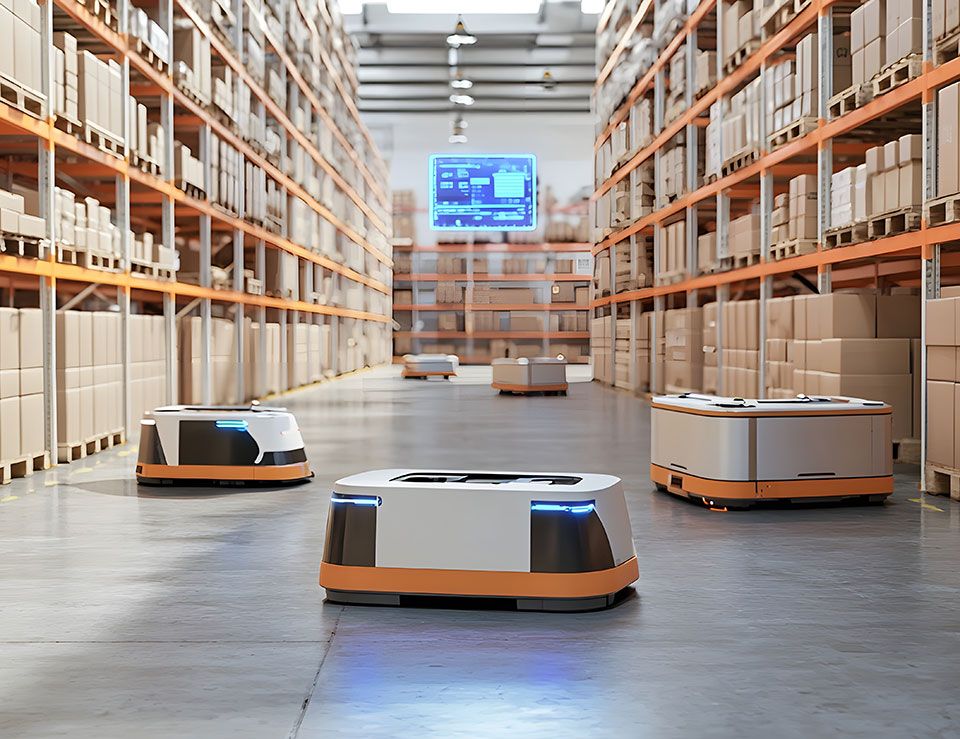Artificial Intelligence as a Data Warehouse: The Future of Business Management for SMEs
For small and medium-sized enterprises, AI-powered data warehousing offers enormous potential. Through intelligent automation and data-driven decision-making, SMEs can compete with larger players and operate more efficiently. Particularly innovative are cloud-based AI systems such as ai.go, which enable SMEs to optimize their business management by providing real-time analytics, accelerating decision processes, and minimizing supply chain risks.
Another key advantage is the user-friendly UI/UX: with ai.go, employees can interact with the knowledge base in natural language, making it easy for non-technical users to access relevant information quickly and effectively.
This article explores the evolution of BI systems into AI-powered data warehouse solutions—and shows how SMEs can leverage these technologies to strengthen their business management.

1. The Evolution of Business Intelligence to AI-Driven Systems
1.1 Traditional BI Systems and Their Limitations
- Limited analytical capability: Most BI systems focus on historical data and offer little support for predictive analysis.
- High manual effort: Data preparation and analysis often require manual intervention, consuming time and resources.
- Lack of scalability: As data volumes increase, traditional BI systems become slower and less efficient.
1.2 The Role of AI in the Modern Data Warehouse
AI technologies elevate data warehouse systems to an entirely new level. Through machine learning (ML) and deep learning, an AI-powered data warehouse can not only store data, but also:
- Automatically detect patterns in large datasets,
- Generate forecasts for future developments,
- Deliver real-time analytics,
- Provide automated recommendations for action.
For small and medium-sized enterprises, this creates a significant advantage: they can operate more efficiently, manage risks more effectively, and leverage their data to its full potential. Cloud-based AI systems such as ai.go add further value by being flexibly scalable without requiring heavy upfront investments.
2. The Potential of AI for Small and Medium-Sized Enterprises
2.1 Efficiency Gains Through Automation
By leveraging AI, routine tasks can be automated—freeing employees and accelerating processes. For example, AI-powered systems can automatically generate reports, clean data, or detect anomalies in the supply chain at an early stage.
2.2 Predictive Analytics for Informed Decisions
AI can analyze historical data and generate forecasts for the future. This helps businesses make better decisions, anticipate bottlenecks, and minimize risks. For instance, a manufacturing company can use AI to predict demand for specific products and adjust inventory levels accordingly.
2.3 Improved Customer Management
AI enables businesses to create personalized offers and marketing strategies. By analyzing customer behavior, AI can deliver individual recommendations that boost customer satisfaction.
2.4 Quality Management and Error Prevention
In manufacturing, AI can help identify and correct errors early in production processes. Continuous monitoring of production data allows quality issues to be avoided before they escalate.
3. Challenges and Solutions
While the benefits of AI-powered data warehouses are clear, businesses face several challenges in implementation:
- Costs: Implementing AI technologies requires investments in infrastructure and skilled professionals.
- Talent shortage: There is a lack of experts in AI and data analytics.
- Data privacy and security: Companies must ensure that sensitive data remains protected.
Solution: Cloud-based AI platforms such as ai.go offer SMEs a flexible, scalable, and secure solution. They provide fast and cost-effective access to powerful data analytics—without the need to build expensive IT infrastructures.
4. ai.go: AI-Powered Business Management in Practice
ai.go provides companies with a powerful platform for intelligent data analysis and risk minimization. Key features include:
- Automated data analysis: AI algorithms integrated for real-time analytics of business data.
- Supply chain risk management: Real-time identification and assessment of risks.
- Forecasting and decision support: Predictive analytics to optimize business processes.
By using ai.go, SMEs can optimize business management and strengthen long-term competitiveness.
Conclusion
The future of business management lies in the intelligent use of data—and AI is the key. AI platforms like ai.go give small and medium-sized enterprises a powerful, scalable, and cost-efficient way to optimize data-driven decision-making and sustainably improve their business processes.

